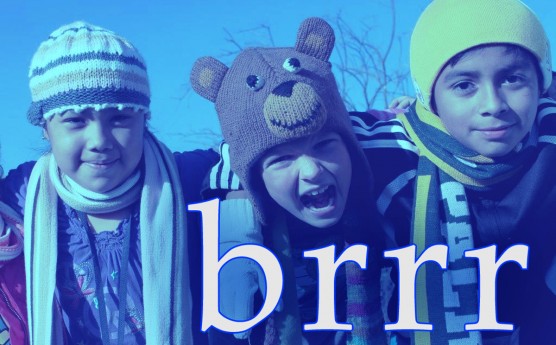The Los Angeles County Health Officer is issuing a Cold Weather Alert for the Santa Clarita Valley Thursday through Sunday due to the National Weather Service’s forecast for low temperatures. Wind chill temperatures are expected to be below 32 degrees Fahrenheit. Affected areas include:
– East San Gabriel Valley – Thursday, Feb. 23 to Friday, Feb. 24 and Sunday, Feb. 26.
– Lancaster – Thursday, Feb. 23 to Monday, Feb. 27.
– Mount Wilson – Thursday, Feb. 23 to Monday, Feb. 27.
– East San Fernando Valley – Sunday, Feb. 26.
– West San Gabriel Valley – Sunday, Feb. 26.
“Taking extra precautions amid cold weather events is especially important for children, the elderly, those with disabilities, and those with special medical needs,” said Muntu Davis, MD, MPH, Los Angeles County health officer. “Shelters and other public facilities are open for those who have no access to a warm space. It’s also important for everyone to make sure they are staying warm safely—never heat a home with a stove, oven, or barbeque as this could lead to carbon monoxide poisoning.”
During these cold weather conditions, you can do several things to help yourself and others stay safe:
– Avoid carbon monoxide poisoning. Never use a generator inside a home, shed or garage even if doors and windows are open. Keep generators outside and far away from windows, doors and vents.
– Never use charcoal grills or camp stoves indoors. Deaths have occurred after people burned charcoal or used camp stoves in enclosed spaces, which produced lethal levels of carbon monoxide.
– Never heat your home with a gas stovetop or oven.
– Do not touch or approach a downed power line; call 9-1-1 if you see a downed or damaged electrical line.
– Avoid using candles. If possible, use flashlights instead. If you must use candles, do not burn them on or near anything that can catch fire. Never leave burning candles unattended or near children or bedding. Extinguish candles when you leave the room.
– Have a plan for back-up power if you or someone in your family is dependent on electricity for medical devices.
– Wear layers and have blankets available to add additional warmth. Layers will keep you warmer than a bulky sweater. Stay dry to avoid hypothermia.
– If it is safe, check on neighbors who may need assistance — older adults, people with disabilities and young children are more at risk in extreme cold.
Health Risks
Hypothermia: People exposed to cold weather for prolonged periods can lose body heat and develop hypothermia. Symptoms vary depending on how long you are exposed to cold temperatures. Early symptoms of hypothermia include shivering, fatigue, loss of coordination, and confusion and disorientation. Late symptoms of hypothermia include no shivering, blue skin, dilated pupils, slowed pulse and breathing, and loss of consciousness.
Frostbite: People exposed to extremely cold weather conditions with snow and freezing temperatures may be at risk of frostbite. Frostbite is a bodily injury caused by freezing that results in loss of feeling and color in affected areas. The most common affected areas are the nose, ears, cheeks, chin, fingers, or toes. Gently warm the person and seek immediate medical care if you believe someone is showing signs of hypothermia or frostbite.
Carbon monoxide poisoning: Carbon monoxide (CO) is an odorless, colorless gas that can kill you. It is found in fumes produced any time you burn fuel in cars or trucks, small engines, stoves, lanterns, grills, fireplaces, gas ranges, or furnaces. Carbon monoxide can build up indoors and poison people and animals who breathe it. Symptoms include shortness of breath, headaches, muscle and joint pain, and nausea. Exposure to high levels of carbon monoxide can lead to death within minutes. Those suffering from carbon monoxide poisoning should be immediately taken outside, into fresh air, and should be rushed to the emergency room for immediate medical treatment.
Emergency Shelter
The Los Angeles Homeless Services Authority (LAHSA) emergency shelters offer temporary shelters across the County to protect people experiencing homelessness during colder months. These beds are available through March 2023.
Persons seeking shelter services to stay in a warm place can visit www.lahsa.org/winter-shelter, dial 2-1-1 or call the Winter Shelter Hotline at 1(800) 548-6047. Transport services are available for those in need.
Los Angeles County residents and business owners, including people with disabilities and others with access and functional needs, may also call 2-1-1 or visit www.211la.org for emergency preparedness information and other referral services 24 hours a day and seven days a week. For the deaf and hard of hearing, call the TDD line at 1-800-660-4026.
Like this:
Like Loading...
Related





 Tweet This
Tweet This Facebook
Facebook Digg This
Digg This Bookmark
Bookmark Stumble
Stumble RSS
RSS




























REAL NAMES ONLY: All posters must use their real individual or business name. This applies equally to Twitter account holders who use a nickname.
0 Comments
You can be the first one to leave a comment.